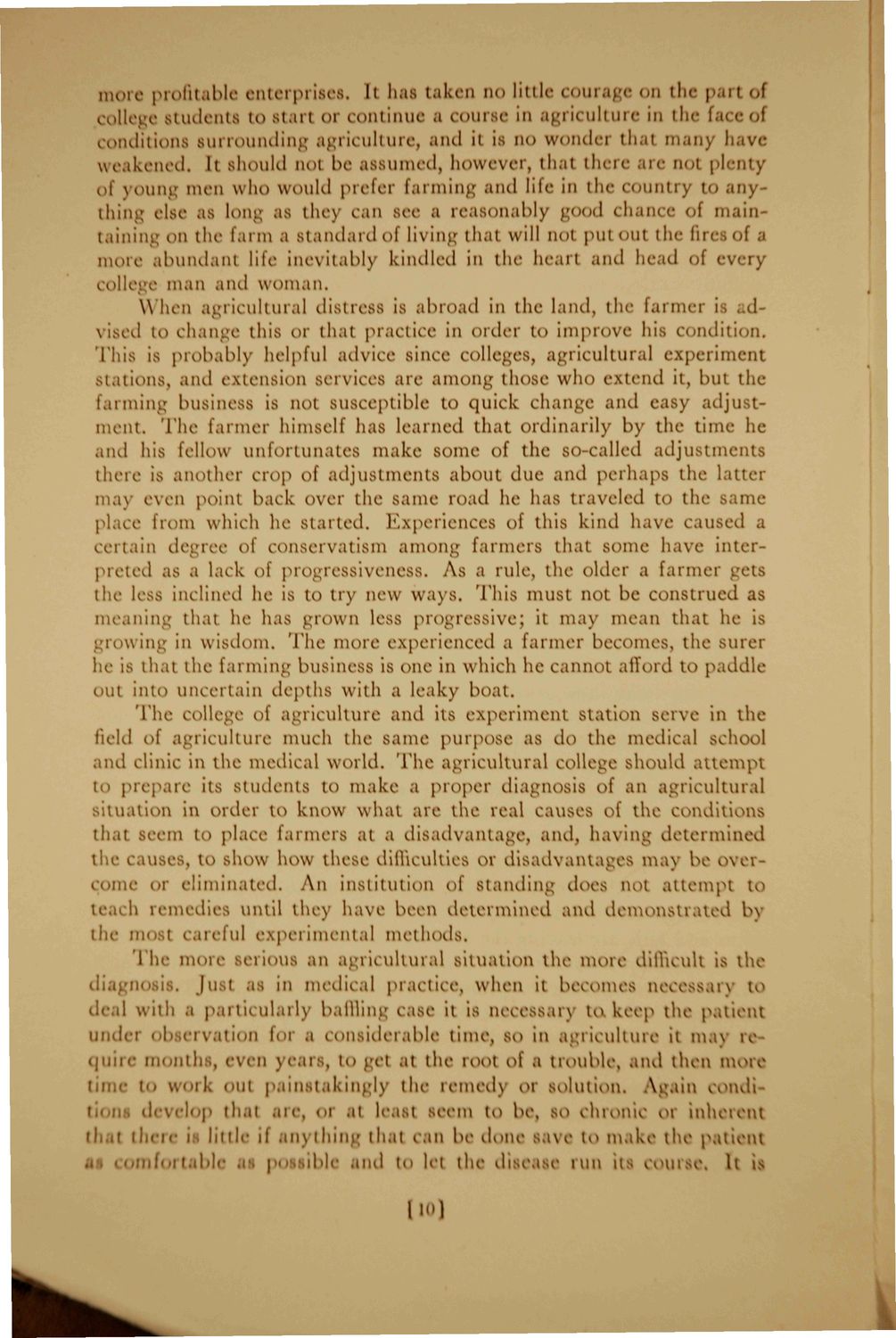Caption: Booklet - Agricultural College and Experiment Station (1924)
This is a reduced-resolution page image for fast online browsing.

EXTRACTED TEXT FROM PAGE:
more profitable enterprises. It has taken no little couraj Colh c students to start or Continue a course in agricultUI on the part of in the f of editions surrounding agriculture, and it is no wondei that many bav< weakened. It should not be assumed, however, that there arc not plenty of voun men who would prefer farming and life in the country to anything else as long as they can see a reasonably good chan< f maintaining on the farm a standard of living thai will not put out the fin i mote abundant life inevitably kindled in the heart ami head of every COIN c man and woman. When agricultural distress is abroad in the land, the farmer i elvised to change this or thai practice in order tO improve his condition This is probably helpful advice since colleges, agricultural experiment stations, and extension services arc a m o n g those who extend it, but the farming business is not susceptible to quick change and easy adjustment Tin tanner himself has learned that ordinarily by the time he and his fellow unfortunates m a k e some of the so-called adjustment there is another crop of adjustments a b o u t d u e ami p e r h a p s the latter may e\ en point back over the same road he has traveled to the I m pi e from which he started. Experiences of this kind have caused . certain degree of conservatism among farmers that some have interpreted as a lack of pr< i essivencss. As a rule, the older a fanner gets the less inclined he is to try new ways. T h i s must not be construed as meaning that he has grown less progressive; it m a y mean that he is growing in wisdom. T h e more experienced a farmer becomes, the surer he is that the farming business is one in which he cannot afford to paddle out into uncertain depths with a leaky boat. T h e College of agriculture and its experiment station serve in the field of agriculture much the same purpose as do the medical school and clinic in the medical world. The agricultural colh e should attempt to prepare its students to make a proper diagnosis of an agricultural situation in order to know what are the real causes of the conditions that seem to place fanners at a disadvantage, and, having determined the causes, to show how these difficulties or disadvantages may be overme <>r eliminated. An institution of standing does not attempt t< teach remedies until they have been determined and demonstrated bj the m t careful experimental methods. < i he moi< i rious an agricultural situation the more difficult is the nosis. Just as in medical practice, when it becomes ncccssarx ft I with a particularly baffling ease it is necessary to keep the patient undei "I t ivation for a considerable time, so in agriculture it may re to ret at the root of a trouble, and then mor. • month | even y e n to \ ik out painstakingly the remedy 01 solution. Vain condi t ; 18 d< p that aie, 01 at least seem to be, so c h i o m c 01 inhcicnt that the i little 1 .1 II \ tin nr that can be dom 1 i\ e to mak the patient i | Comfortable as possible ami to let the disease inn itS COUttC, It is [10]
|